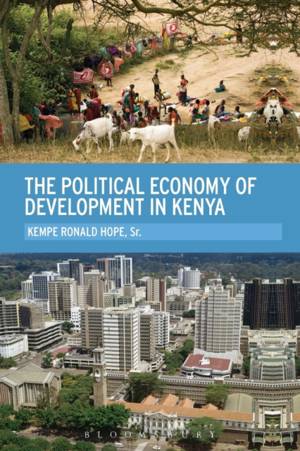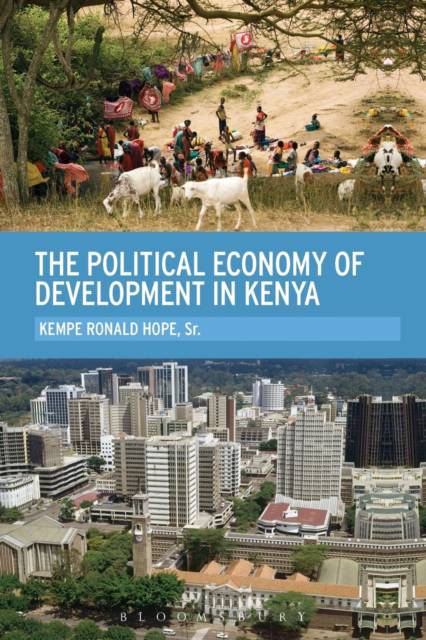
- Afhalen na 1 uur in een winkel met voorraad
- Gratis thuislevering in België vanaf € 30
- Ruim aanbod met 7 miljoen producten
- Afhalen na 1 uur in een winkel met voorraad
- Gratis thuislevering in België vanaf € 30
- Ruim aanbod met 7 miljoen producten
Zoeken
€ 88,45
+ 176 punten
Omschrijving
Kenya is a country of geopolitical and economic importance in East Africa. It shares borders with unstable states such as Somalia and Sudan while being a hub for trade, communication, finance, and transportation across the region. Although relatively stable since its independence in 1963, the country still faces poverty, inequality, and corruption. In addition, the contested election of 2007 led to severe ethnic strife that tested its political stability, leading to a new constitution in 2010. This unique survey by a leading expert on the region provides a critical analysis of the socio-economic development in Kenya from a political economy perspective. It highlights Kenya's transition from being a centralized state to having a clear separation of powers and analyzes key issues such as economic growth, urbanization, corruption, and reform. The book identifies Kenya's key socio-development problems and offers solutions to improve both governance and economic performance, making it an essential resource to researchers, academics, and policy makers working on development issues and African politics.
Specificaties
Betrokkenen
- Auteur(s):
- Uitgeverij:
Inhoud
- Aantal bladzijden:
- 304
- Taal:
- Engels
Eigenschappen
- Productcode (EAN):
- 9781623565343
- Verschijningsdatum:
- 24/10/2013
- Uitvoering:
- Paperback
- Formaat:
- Trade paperback (VS)
- Afmetingen:
- 152 mm x 229 mm
- Gewicht:
- 408 g

Alleen bij Standaard Boekhandel
+ 176 punten op je klantenkaart van Standaard Boekhandel
Beoordelingen
We publiceren alleen reviews die voldoen aan de voorwaarden voor reviews. Bekijk onze voorwaarden voor reviews.











